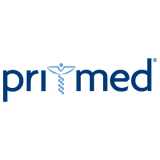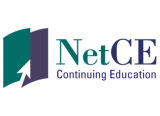What PCPs Need to Know About Treatment for Atopic Dermatitis: Essentials for Clinical Practice

Join us for an immersive session that encourages active learning and critical thinking to help build your knowledge of atopic dermatitis (AD) management.
Category
Format
- Self-study / Enduring
Credits
- 0.46 AANP Contact Hours
- 0.23 AANP Pharmacology Contact Hours
- 0.50 AMA PRA Category 1 Credit™
2022 CDC Clinical Practice Guidelines: What’s the Update on Prescribing Opioids for Pain? - Frankly Speaking Ep 322

Patients deserve compassionate, safe, and effective pain management. But it’s important to remember that safe prescribing does not mean no prescribing. Join us as we discuss the 2022 CDC Clinical Practice Guidelines for prescribing opioids in the adult population.
Category
Format
- Self-study / Enduring
Credits
- 0.25 AMA PRA Category 1 Credit™
Navigating Pain Management: A Case Study Addressing Strategies for Initial Treatment and Counseling

When considering opioids for treating both short-term and long-term pain, it's crucial to prioritize patient safety. This means conducting thorough risk assessments and engaging in open conversations with your patients.
Category
Format
- Self-study / Enduring
Credits
- 0.38 AANP Contact Hours
- 0.19 AANP Pharmacology Contact Hours
- 0.50 AMA PRA Category 1 Credit™
P.A.C.T.: Practical Approaches to Comprehensive Treatment of Pain

The nation is facing competing public health issues: the need to treat a large number of Americans with acute and chronic pain vs the crisis of prescription opioid abuse.
Category
Format
- Self-study / Enduring
Credits
- 3.50 AANP Contact Hours
- 1.59 AANP Pharmacology Contact Hours
- 3.50 AMA PRA Category 1 Credit™
Controlled Substances (Opioids) – Safe and Effective Prescribing (Nursing CE) – 3 Hours

This continuing education course is developed to provide the most current information on controlled substances which are federally regulated.
Category
Format
- Self-study / Enduring
Credits
- 3.00 Contact hours
Anemia in the Elderly

Anemia may be common in the elderly patient, but it should not be accepted as normal aging. The scientific evidence suggests that consequences of untreated geriatric anemia are significant. Anemia leads to poorer quality of life and increased morbidity and mortality.
Category
Format
- Self-study / Enduring
Credits
- 2.00 AANP Pharmacology Contact Hours
- 5.00 AMA PRA Category 1 Credit™
- 5.00 ANCC
HSC Health: 2022-24 Remote Patient Monitoring

Chronic diseases, such as heart disease and diabetes, are the leading drivers of our nation's $4.1 trillion annual healthcare costs. Hospitalizations are a large part of the cost.
Category
Format
- Self-study / Enduring
Credits
- 1.00 ACPE Pharmacy
- 1.00 AMA PRA Category 1 Credit™
- 1.00 ANCC
- 1.00 AOA Category 2-B
- 1.00 Association of Social Work Boards (ASWB)
HSC Center for Older Adults: 2023-25 Telemedicine: Addressing Barriers for Special Populations

Telemedicine visits for older adults and younger people with disabilities will differ based on sites such as in the general community, independent living communities, assisted living, memory care communities, and skilled nursing facilities.
Category
Format
- Self-study / Enduring
Credits
- 1.00 ACPE Pharmacy
- 1.00 AMA PRA Category 1 Credit™
- 1.00 ANCC
- 1.00 AOA Category 1-B
- 1.00 Association of Social Work Boards (ASWB)
HSC Center for Older Adults: 2023-25 Addressing Depression in the Context of Age-Friendly Care

Major depressive disorder comes under the "M" of Mentation of the Age-Friendly Health System model. This activity will discuss suicidal epidemiology, assessment, and treatment for Major Depressive Disorder.
Category
- Depression
Format
- Self-study / Enduring
Credits
- 1.00 ACPE Pharmacy
- 1.00 AMA PRA Category 1 Credit™
- 1.00 ANCC
- 1.00 AOA Category 2-B
- 1.00 Association of Social Work Boards (ASWB)
RSV in Infants: An Ounce of Prevention - Frankly Speaking Ep 353

Bronchiolitis caused by respiratory syncytial virus (RSV) infection in infants is common and can lead to hospitalization if severe. There are now two ways to prevent this: immunizing the mother during pregnancy or giving monoclonal antibodies.
Category
Format
- Podcast
Credits
- 0.25 AMA PRA Category 1 Credit™

 Facebook
Facebook Twitter
Twitter LinkedIn
LinkedIn Forward
Forward